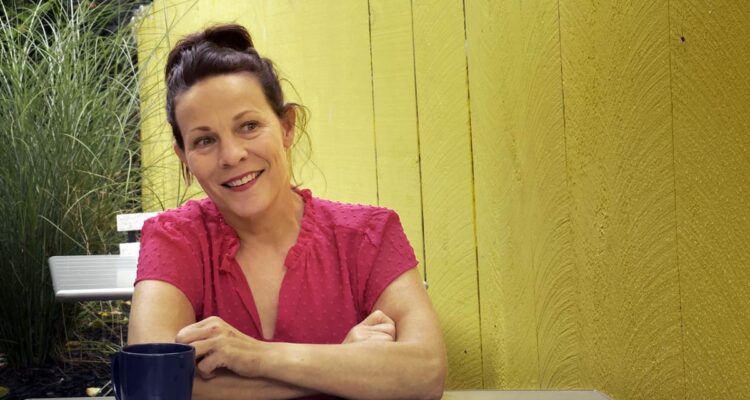Andrew Bujalski’s “There There” opens with a mellow, melancholy saxophone solo, the first of several musical interludes by The War on Drugs’ Jon Natchez that serves as bridges between the series of primarily two-person scenes that will follow. The first of them is probably the best – it makes a promise the movie can’t quite keep – as a doctor (Lili Taylor) and a restaurateur (Lennie James) wake up the morning after their first date and first sexual encounter. They’re sweet with each other in a very specific way; Bujalski’s writing, and his fine cast’s playing, capture the rhythms and peculiarities of morning-after small talk. “I’m not normally like that,” she says of her behavior the night before; he cheerfully shares secrets one typically waits a few dates for (“People our age? We have so much baggage – but I am such a colossal fuck-up that I have no baggage”).
READ MORE: Tribeca 2022 Festival Preview: 24 Films & TV Series To Watch
The intimacy is striking, but that’s not all there is; you have to see a scene like this to realize how rarely we actually see, in movies, this kind of conversation between two people of this age. But their chemistry goes sideways, and the scene comes to a sudden, unexpected conclusion. Another musical interlude follows, this one deeply discordant, and then we find Taylor rehashing the events of the morning to her AA sponsor: “All of a sudden, I had a panic attack, and this man had to leave.” Another interlude and the Bujalski follows her sponsor to a parent-teacher conference, and so on.
So it’s a series of duets, each only vaguely connected to the last, each beginning with a fairly standard set-up before taking a strange, unexpected turn. It’s not a bad idea for a low-budget comedy/drama, full of little insights and moments of observation, the kind of thing Bujalski has done plenty of times before (and, presumably, will again).
But there’s something strangely off about “There There.” First and foremost, it looks odd and not in the purposeful way of something like “Computer Chess.” The compositions are peculiar, little rules of film grammar (like crossing eye-lines) keep breaking, and the edits weirdly call attention to themselves; shots are held just a beat too long or brought in too soon, making the viewer overly aware of blocking and timing.
Rookie mistakes like this stick out after Bujalski’s last two features, “Results” and “Support The Girls,” which had the professional sheen of a studio comedy. “There There” is obviously a much smaller production with a lower budget, but it’s not merely a question of image quality – it’s like he forgot how to frame a shot or hide an edit. It has the unsettling, amateurish self-consciousness of a first film, which is forgivable when it’s, y’know, a first film. But this lack of polish isn’t what we expect from someone who’s been doing this for as long as he has. (Maybe the point was to shake off the confines of the well-made film. If so… ok?)
Some of the performances are noteworthy. Jason Schwartzman has the right kind of energy for his scenes – he’s believable, even when his character is spouting nonsense – and it’s always a pleasure to watch Taylor work (she’s the kind of actor who can put an extra spin on a line like “Look, I’m always open to everyone’s spiritual journey”). She and James have palpable chemistry, and when he returns at the end of the picture for another strong scene with Molly Gordon (so good in “Shiva Baby”), it’s a relief.
But the longer “There There” goes, the more it meanders and never into the realm of anything particularly funny or compelling. Instead, it plays mostly like a series of exercises – in writing, acting, and covid-era production. It feels like a movie Bujalski made to make a movie. Which is fine for him but doesn’t offer much to the rest of us. [C-]
Follow along with all our coverage of the 2022 Tribeca Film Festival.

